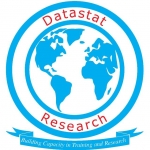|
|
Training Course on Mainstreaming Disaster Risk Reduction into Development Process
USD 1,000 |
Venue: Nairobi, Kenya
Disaster risk within a country has its roots in development decisions that do not adequately address disaster concerns, and the resulting disasters are coming at the cost of development and poverty reduction. By not considering disaster risk in development planning, new risks could be unintentionally created or existing ones exacerbated through investments in infrastructure and public services, and through improper planning and regulation.
Thus, it is essential that the process of development planning identifies and analyzes the underlying causes of risk, and factors in measures for risk reduction. By mainstreaming disaster risk reduction into national development processes, disaster risk considerations can be made an integral part of development processes, especially in priority sectors such as agriculture, education, health, housing and roads.
This course has been developed to enhance the capacity of government officials, development partners, and stakeholders involved in development planning to mainstream disaster risk reduction into development activities and practices.
Duration: 5 days.
Who Should Attend?
The course is particularly useful for government officials responsible for disaster risk reduction policy and planning, national development planning, land-use planning, local development or finance; representatives of national forums on the Millennium Development Goals; and related agencies.
The course will also benefit development professionals from development agencies (e.g., UN agencies, bilateral and multilateral agencies and nongovernmental organizations), working closely with government agencies on issues related to development policy, planning, and programs.
Course Objectives
Upon completion of the course, the participants will be able to:
i. Increasing awareness among participants on the need to mainstream disaster risk reduction into the development planning processes
ii. Enhancing the capacity of participants on "how to" mainstream disaster risk reduction concerns into the national, sub-national, and sectoral development planning processes
iii. Providing a platform for experience sharing, discussion and interactive professional exchange on mainstreaming disaster reduction in development
Course Content
Module I: Introduction to disaster risk reduction
a. Disaster risk reduction (DRR)
b. Terminologies related to DRR
c. Comprehensive link between disasters and development
d. Risk assessment
e. How to use risk information to guide development decisions.
Module II: Mainstreaming disaster risk reduction into the development planning process
a. Disaster loss data
b. Socio-economic impact of disasters
c. Macroeconomic impacts
d. Household and community impacts
e. Appreciation of the scope for enhanced resilience
f. Accountability
g. Political champions
Module III: Application of Risk Information for Risk Reduction Planning
a. Visualization of risk information (Using QGIS/ILWIS/SAGA Software).
b. Risk mapping and database generation using Excel/QGIS and SAGA
c. Disaster monitoring: satellite image processing techniques for change detection
d. Creating a personal geodatabase for GIS emergency support manpower with personnel location information, contact information, and specialized skills.
e. Creating a risk map
- Use of GIS and RS in identification of the extent and magnitude of each hazard.
Module IV: Enabling environment for mainstreaming
a. Legislation
b. Disaster risk management strategy
c. Institutional arrangements and capacity for disaster risk management
- National government
- Local government
- Integration of disaster risk reduction into national and local government development planning
d. National Physical Framework Plan
e. National development plans
f. Local planning
g. Intra-government horizontal and vertical integration
h. Budgetary considerations
i. Project appraisal
j. Beyond platitudes: setting disaster risk reduction goals and related indicators
k. Monitoring and evaluation for mainstreaming
l. Financing options for DRR
Methodology
The instructor led trainings are delivered using a blended learning approach and comprises of presentations, guided sessions of practical exercise, web-based tutorials and group work. Our facilitators are seasoned industry experts with years of experience, working as professional and trainers in these fields.
Key Notes
i. The participant must be conversant with English.
ii. Upon completion of training the participant will be issued with an Authorized Training Certificate
iii. Course duration is flexible and the contents can be modified to fit any number of days.
iv. The course fee includes facilitation training materials, 2 coffee breaks, buffet lunch and a Certificate upon successful completion of Training.
v. One-year post-training support Consultation and Coaching provided after the course.
vi. Payment should be done at least a week before commence of the training, to DATASTAT CONSULTANCY LTD account, as indicated in the invoice so as to enable us prepare better for you.
| Nairobi, Kenya | Nov 25 - 29 Nov, 2024 |
| USD 1,000.00 | |
Sammy Gathuru 0724527104
Related Courses
 Training on Big Data Analytics Using Python
Training on Big Data Analytics Using PythonOn going
5 days, 02 - 06 Dec, 2024
Datastat Research Center
 Training Course on Android Application Development and Programming
Training Course on Android Application Development and Programming
5 days, 09 - 13 Dec, 2024
Datastat Research Center
 Training Course on Mapping with Geoserver, Postgres, and Openlayers
Training Course on Mapping with Geoserver, Postgres, and Openlayers
5 days, 16 - 20 Dec, 2024
Datastat Research Center




